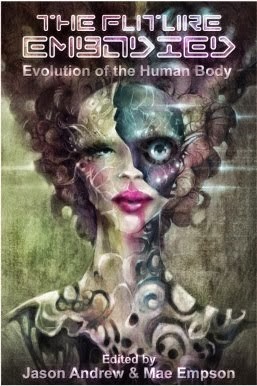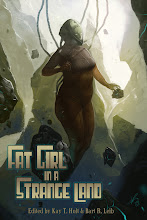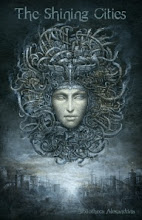Over Labor Day weekend, I attended my first Worldcon in San
Antonio, Texas. I decided to go for a lot of reasons, but I think the most
important one was to slowly increase my visibility in the field by
networking with my writing colleagues.
The view from my hotel balcony.
I had no idea what to expect, and I’d like to share what
I’ve learned so you’ll be better prepared if you plan to attend an event like
this in the future.
1. Never Take Off Your Nametag
This could be my own issue, but I’ve never been a fan of
nametags. Whether it was the first day of school, my work as a waitress back in
the day, or attending work conferences, my initial impulse was always to whip
off the tag as soon as possible.
Do not do this. The whole point of conventions is to
meet like-minded people, right? But unless you already know someone’s a writer,
it can be tough to spot one out in the wild. At a convention, if you see a
nametag, you can be reasonably sure they’re a serious SFF fan or writer or both,
whether you are crossing the street between the hotel and the conference space,
hunkering down in the hotel lobby for the free internet, or getting a drink or
a bite to eat in the hotel lounge. So this is one of the few times where it’s
okay to let your freak flag fly.
The nametag also makes introductions easier and seeing a
printed name (as opposed to just hearing it) can reinforce retention.
That said….
2. Be Prepared to Reintroduce Yourself A Lot
You will be meeting a lot of people. And just as you will
have difficulty keeping everyone straight, the people you meet will also have
trouble putting the name to the face. If they don’t remember you, don’t take it
personally. Be gracious, and if the opportunity presents itself, remind
them that you met them the night before at a party or last year at another
event or that you share a TOC together… whatever it is that will help jog their
memory and put you into context.
You want them to remember your face, your name, and
something pleasant about you—not how you gave them a hard time for not
remembering who you are from a 15-second introduction. That just makes them
feel guilty, and they will then avoid you to avoid experiencing that negative
emotion again.
3. Dress to Impress
I’m not talking business casual. Personal hygiene is important to handle (especially in Texas in August). As
Mary Robinette Kowal said in a panel on schmoozing, you want to be the best
possible version of yourself—whatever that means to you.
For me, that meant wearing clothes that had a consistent
feel, styling my hair in a similar way, and wearing the same necklace and
bracelet combo across the days at the convention so that people would recognize
me, even if they didn’t know my name. Think of it as professional branding.
4. Ribbons Ribbons Everywhere
As this was my first con, I didn’t realize there were
special “ribbons” you could affix to your nametag. These little pieces of
fabric were issued to people who had pub’d in certain magazines or talked to certain
con personnel or supported a particular author or whatever. I later found out
there was even a ribbon for attending your first Worldcon. Many people (though
not everyone) had them. I even saw one kid walking around the convention hall
with so many ribbons they dragged along after him.
As with the nametags, the ribbons provide quick visual
reinforcement in identifying people in your “tribe” and often served as a
source of small talk. Now, I’m not saying I was ignored because I didn’t have
any ribbons—I wasn’t. But it did reinforce my newbie status because I had no
idea how they worked.
The exception of course were the bright green ribbons
identifying the panelists and invited guests to the convention. Which leads me
to….
5. Pay Attention to the Social Hierarchy
At the con, I was pretty insignificant compared to the
writers further along in their careers and the editors and agents that were
there. And the ribbons often reinforced this.
Unlike other cons, there were no pitch appointments offered.
The only way to get an agent or editor’s attention was to either get introduced
by someone they respected or small talk your way into their hearts.
Both are hard to do and are extremely dependent on luck,
your social abilities, and the kindness of your colleagues.
People can sense desperation. If someone powerful has a bad
opinion of you, it could haunt you the rest of your career. So don’t be that
person who stalks the important people all over the con or the person who turns
into a squeeing mess the second you get to talk to your writing hero, dream
agent, or whathaveyou.
Instead, be sure to act courteously, and if at all possible be
interesting. You may not get an opportunity to talk about you or your work,
and that’s okay. Take the long view. You want to leave people with a favorable
impression no matter what because who knows what could happen the next time you
meet them.
Stay tuned for Part Two next week!





























